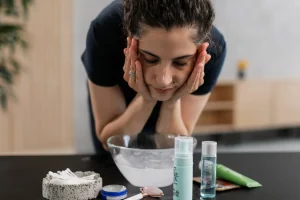Mental Health in the Digital Age
3 min read
Trustworthy digital tools are essential for improving mental health, but in order for these tools to have any real clinical effects they need to be created with participation of data scientists, mental health clinicians, and patients in mind.
Technology offers many positive effects, yet it’s essential that individuals practice self-care and seek professional assistance if needed. Here are a few suggestions on how you can safeguard your mental wellbeing:
Limit Screen Time
Young children and teenagers today are growing up surrounded by technology, using it for communication, play and content creation from an early age.
Digital tools may not be the sole answer to solving the global mental health crisis, but they can play a pivotal role in diagnosing and treating young people’s mental illness as well as informing them about self-care strategies.
However, it is essential that screen time be limited for mental health purposes. Prolonged exposure can cause eye strain, insomnia, depression and anxiety – and studies have also demonstrated how too much media consumption can lead to social skills being lost, inability to concentrate and feelings of isolation among children consuming too much media content. It can even encourage violence as an acceptable solution, negatively affecting their mental wellbeing and mental wellbeing in turn. Limiting screen time will improve focus while decreasing anxiety/depression/happiness/and increasing physical activity levels simultaneously.
Practice Self-Care
Self-care has quickly become a hot topic due to its positive impacts on mental health. Yet for some individuals it may be challenging to make time for themselves while also fulfilling their responsibilities and engaging in activities they enjoy.
Individuals often prioritize their own wellbeing by exercising, eating a nutritious diet and getting adequate rest. Others find mindfulness practices, spending time with loved ones or participating in relaxation activities like meditation can also help them feel their best.
Maintaining good mental health can be challenging in this digital era where it’s easy to get caught up in negativity on social media, distractions or information overload. By taking steps to manage your digital usage you can reduce stress levels, improve overall mood and boost self-esteem. For help creating a self-care routine consult a counselor or behavioral health specialist near you who can offer guidance, support and resources that will enable you to thrive daily life.
Disconnect Regularly
An effective work-life balance is vital to mental health, and part of that means taking steps to unplug from technology on a regular basis. Simply putting down your phone, turning off notifications, and not multitasking can have profound effects on wellbeing.
Constant connectivity may have negative repercussions, including disrupted sleep patterns, altered body image and cyberbullying potential. Furthermore, constant connectivity may create feelings of FOMO and anxiety.
The Digital Mind Series explores the role of new technologies in improving mental health, from mobile apps for psychotherapy and e-counselling, as well as internet interventions such as self-help websites or virtual reality adjuncts to therapy, to mobile apps that use GPS tracking for psychotherapy, to self-help websites or virtual reality adjuncts to therapy. Furthermore, this series investigates both their benefits and drawbacks, along with potential tools that could recognize early signs of mental illness and provide effective treatments. It implies that as we become increasingly dependent on digital tools our ability to recognize early warning signals may diminish over time, increasing over time – something which increases with dependence reliance – potentially decreasing our abilities to recognize early signs may decline over time unless something like this series explores.
Manage Social Media Use
Social media use has long been blamed for harming mental health. From casual cruelty of trolls to feeling your life doesn’t measure up to that curated on Instagram or Snapchat, we hear lots about its negative repercussions – but like anything, its use comes with both advantages and drawbacks.
Social media offers some people access to mental health peers while offering greater anonymity than physical environments can. Furthermore, it can serve as an effective platform to raise awareness about depression, anxiety and other forms of mental illness.
However, if your social media usage is exacerbating depression or anxiety symptoms, speak to a therapist or BetterHelp coach about them immediately. They can assist in developing tools and strategies to minimize its negative effect while taking full advantage of its potential positive benefits for positive change.







